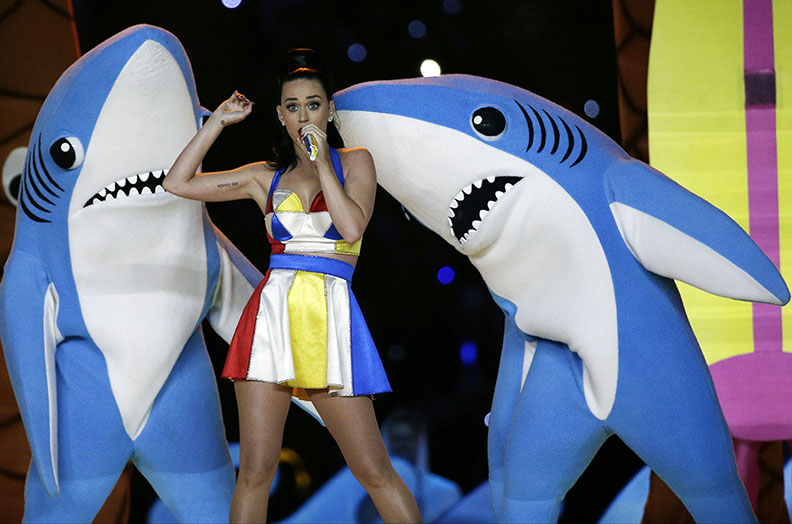When I was younger, in middle school and high school, liking certain things almost meant disliking other things. We were separated into groups by popularity just as much as we were by the music we chose to listen to; the misunderstood kids listened to emo, the athletes listened to hip-hop, the religious kids listened to Christian rock, the stoners listened to metal, barely anyone listened to country, and we all sat around wondering who was listening to Britney Spears and *NSYNC to justify their successes. This is obviously not true 100 percent of the time, but there’s a reason these stereotypes exist.
I fell into the “emo” category. I would religiously listen to Death Cab For Cutie and Taking Back Sunday because, in my mind, they were the best at making music, and everything else that wasn’t like them sucked. It never crossed my mind that the people who were listening to 50 Cent and Usher thought the same thing about their music. I was content with the music that I knew and was quick to dismiss other styles because they existed outside my comfort zone. I knew that I liked Weezer, and I knew that Lil Wayne was very different from Weezer, so obviously I couldn’t like Lil Wayne.
(Eminem is the exception to this. Almost everybody currently in their mid-20s to mid-30s loved Eminem despite whether or not they were supposed to. His talent transcended our ideologies.)
It’s not until college that the streams start to cross for most people. We develop more open minds after high school and become more aware of social issues. Eventually, liking certain cultural brands would align itself with personal philosophies. Constantly telling people you listen to NPR becomes a filler for “I’m not homophobic,” and complaining that Selma was snubbed at the Oscar’s is a convenient way to tell people that you have done the necessary work to fully understand the history of race in America. Our thought processes changed from “I like Blink 182 so I don’t like Shakira” to “I like Girls so I don’t like misogyny.”
The difference between the two statements is that misogyny is terrible. I don’t need to step outside my comfort zone to understand that. What I have decided is bad is dictating what I watch because it backs up my beliefs. The opposite holds true for the first statement, in which the thing I have decided is great is dictating what I don’t listen to, because it backs up what I only assume to be true.
The stigma attached to pop music is that it’s overproduced and lacks creativity, that it is performed by talentless hacks who rely on computers to make themselves sound good, and nobody wants to align themselves with that. If you liked pop music in high school you were not authentic, and if you like it as an adult it is assumed that you are not very cultured. The thought process amongst the type of people who consider themselves smart becomes “I like music, so I don’t like Miley Cyrus because she is trashy and doesn’t play an instrument and creates songs for dumb teenage girls.” But then when a new Sleater-Kinney record drops, everyone runs to their already-established positions, ready to love it because “this is real music.”
Pop is generally considered to be the “dumbest” type of music, both in creation and consumption. Being an adult fan of Arianna Grande is on par with admitting that you don’t know “better” music is available, even if that’s not true. The phrase “guilty pleasure” exists so people can justify liking just one song that is outside their bubble, because it’s OK to like a Pitbull song as long as you let people know that you normally wouldn’t. Just once I would like to see an avid Taylor Swift fan refer to a Tool song as their “guilty pleasure.”
The truth is, mainstream pop music is popular for a reason: It’s fun. It is perfectly fine to let go of your preconceived notions (based on nothing) that Bruno Mars sucks and sing along to “Uptown Funk” at the top of your lungs. You don’t need to feel guilty about that. It’s a great song. I honestly don’t care how many writers/producers it took to create Katy Perry’s last album, because none of that matters when I am dancing my ass off to “This Is How We Do.”
And contrary to popular belief, there is a lot of musicianship that exists within these pop stars: Nicki Minaj is responsible for one of the best rap verses I have ever heard. Miley Cyrus, Lady Gaga, and Katy Perry have three of the most technically sound singing voices in the current music scene. Bruno Mars is an incredible songwriter and drummer. Justin Timberlake is literally good at everything and, in my opinion, is the single best performer in music right now. I don’t care that the version of me that existed in 2000 would beat the shit out me for thinking that.
I wish we lived in a world where the words “best” and “favorite” were not synonymous. I will never claim that any artist/song/genre is objectively better than any other. But I know what I like, and I know that 1989 was pretty high on my list of favorite albums of 2014. That’s not saying I think it was musically superior to anything else; it’s just what I enjoyed listening to. People will scoff at the fact that Taylor Swift was the only artist to sell a million records last year because they think that she is unworthy and is being over-promoted by big media/radio conglomerates, but we can’t fault her for wanting to be successful. I don’t think she is selling out as much as the rest of the world is buying in. I was one of the million people who bought her record last year instead of spending that money on a smaller or independent artist because she made the thing I wanted.
As music becomes more readily available online, it is also becoming easier to step outside your comfort zone. There is nothing wrong with changing your mind about certain things. And there is nothing wrong with not having an opinion about certain artists, as long as you don’t pretend to have an opinion just because you think it’s the popular one. I don’t know if opening up to a lot of new styles of music is something that everyone is experiencing at the same time due to the internet, or if this is something that everyone in the past has gone through when they grow into their mid-late 20s. Either way, I am happy to have finally gotten over my biases. I feel like I can now experience music as a whole, and not just in my own personal pigeonhole.





